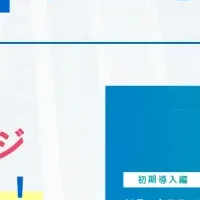
Florida International University Achieves Breakthrough in Electric Vehicle Battery Technology
Pioneering a New Era for Electric Vehicle Batteries
As electric vehicles (EVs) continue to surge in popularity, a significant obstacle remains: charging convenience and battery range. A staggering 46% of EV owners in the U.S. are contemplating a return to gasoline vehicles, primarily due to charging issues. Despite improvements in battery technology, many drivers' expectations outpace the capabilities of current lithium-ion batteries.
However, a promising breakthrough has emerged from the researchers at Florida International University (FIU), who have developed a next-generation battery technology called lithium-sulfur. This innovation could make electric vehicle ownership much more convenient and appealing.
Bilal El-Zahab, an associate professor at FIU's College of Engineering and Computing, pointed out the extensive journey they undertook to achieve this breakthrough. "We started working with these next-generation battery chemistries eight years ago," El-Zahab shared. The latest findings suggest that the lithium-sulfur technology they’ve developed is lightweight, less expensive, and provides greater energy density. As a result, this battery could extend driving ranges for EVs and enhance the battery life of laptops, smartphones, and other devices, potentially allowing them to operate twice as long on a single charge.
However, the lithium-sulfur chemistry has had its challenges. Typically, batteries using this technology face a significant decline in lifespan after around 50 charging cycles. El-Zahab's team encountered the same issues but also managed to solve them through years of testing.
The solution was surprisingly simple: adding a small amount of platinum to stabilize performance and boost storage capacity. Their research results were recently published in the journal Energy and Environmental Materials. "We achieved a 92% capacity retention after 500 charging cycles, indicating the battery remains nearly as reliable as new," stated Aqsa Nazir, a postdoctoral researcher in El-Zahab's lab and the first author of the study. This improvement is a significant leap forward in minimizing adverse reactions that often plague battery performance, making it closer to commercial viability.
The traditional mechanics of battery function involve ions moving between two sides. In this case, one side contains lithium while the other incorporates sulfur. The interaction between these elements generates lithium-containing sulfur compounds, or polysulfides, that disrupt battery efficiency over time, mostly due to a mossy accumulation on the lithium side.
To tackle this chemical reaction, tiny nanoparticles of platinum were integrated into the sulfur side of the battery. This modification allows the lithium ions to flow smoothly, similar to how safety officers manage traffic. The addition of only 0.02% platinum significantly alters the battery's performance.
"Adding nanoparticles of platinum is like seasoning a dish; a small amount can dramatically enhance the flavor," El-Zahab noted, emphasizing the effect of this tiny addition.
Currently, the lithium-sulfur battery is undergoing third-party testing, which is a crucial phase before it can be commercialized and utilized broadly. The potential impacts of this technology could be profound, paving the way for more efficient electric vehicles and helping to promote cleaner energy transportation solutions.
For further questions or details about El-Zahab's groundbreaking research, please refer to the resources provided by FIU.
Topics Consumer Technology)










【About Using Articles】
You can freely use the title and article content by linking to the page where the article is posted.
※ Images cannot be used.
【About Links】
Links are free to use.